You are here
New Releases
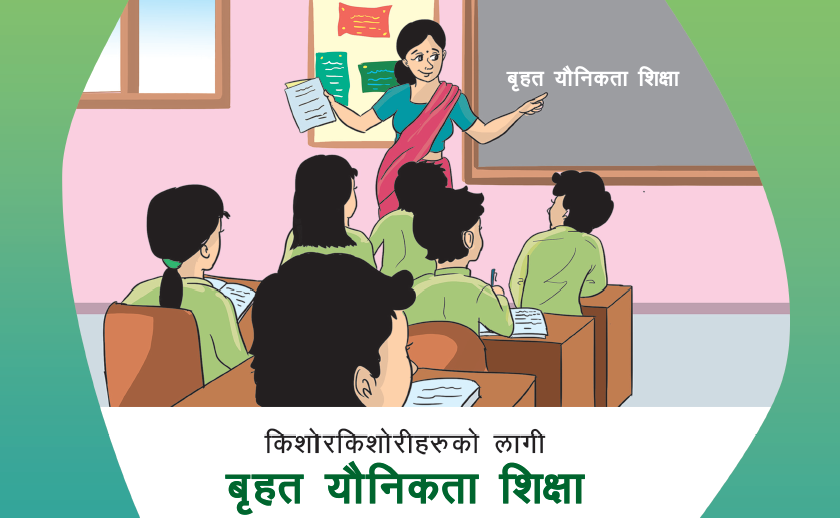
CSE flip chart
This flip chart provides age-appropriate information and knowledge on different components of comprehensive sexuality education (CSE), including sexual and reproductive health, gender and human rights. Developed based on the ITGSE 2018 standards, it is a teaching and learning material that teachers and peer educators can use to equip adolescents and young people with knowledge, skills and values that empower them to realise their health and well-being.
यो फ्लिप चार्टले बृहत यौनिकता शिक्षा सम्बन्धी जानकारी र ज्ञान प्रदान गर्दछ। बृहत यौनिकता शिक्षा भन्नाले यौनिकता सम्बन्धीे ज्ञान, संवेग, शारीरिक र सामाजिक पक्षहरूको सिकाइ प्रक्रिया हो जुन पाठ्यक्रममा आधारित हुन्छ ।
यो चार्ट शिक्षक र दौतरी शिक्षकले किशोरकिशोरी र युवाको बृहत यौनिकता शिक्षा सम्बन्धी ज्ञान तथा सीप बढाउनका लागि प्रयोग गर्न सक्छन् ।
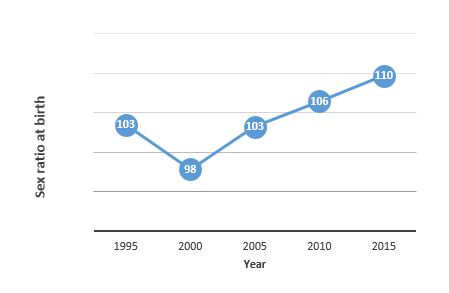
Policy Brief: Legal Landscape of Gender-biased Sex Selection in Nepal
Nepal has been identified as a country with a strong preference for son ever since the World Fertility Surveys first documented the phenomenon in the 1980. The country has been showing signs of skewed or distorted sex ratios at birth in some districts of Terai and hilly regions. Among the children below 10 years of age in the country, male children exceeded female children by 2.2 per cent. In urban Nepal, 5.6 per cent more male than female children were recorded as compared with 1.7 per cent more male than female children in rural Nepal.
This policy brief reviews the prevailing legal issues contributing to the continuation of gender-biased sex selection (GBSS) to identify gaps and recommend ways forward.
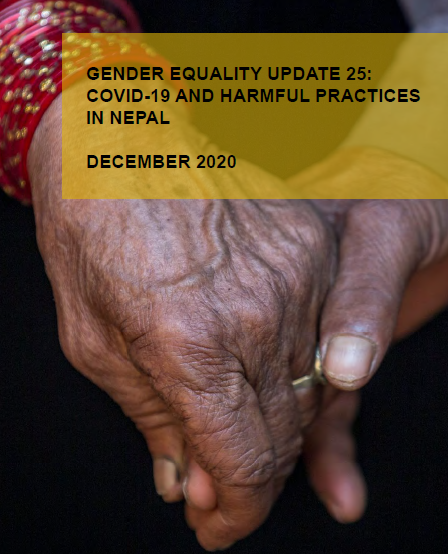
COVID-19 and Harmful Practices in Nepal
The purpose of the Gender Equality Update is to facilitate a multi-level and multi-sectoral approach through recommendations for humanitarian and development actors responding to COVID-19 to address harmful practices specific to Nepal. This Gender Equality Update was developed on behalf of the United Nations Harmful Practices Working Group (HPWG).
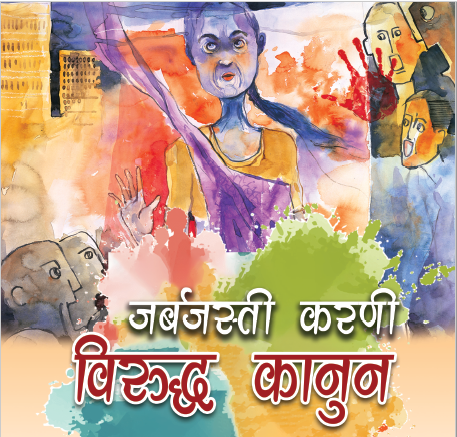
Information Leaflet on Nepal's Law Against Sexual Violence
कसैले कुनै महिलालाई निजको मञ्जुरी नलिई करणी गरेमा जबरजस्ती करणी हुन्छ । यो समाग्री जबरजस्ती करणी विरुद्ध कानूनको जानकारीका लागि महिला, कानुन र विकास मञ्चले यूएनएफपिएको सहयोगमा तयार गरिएको हो ।
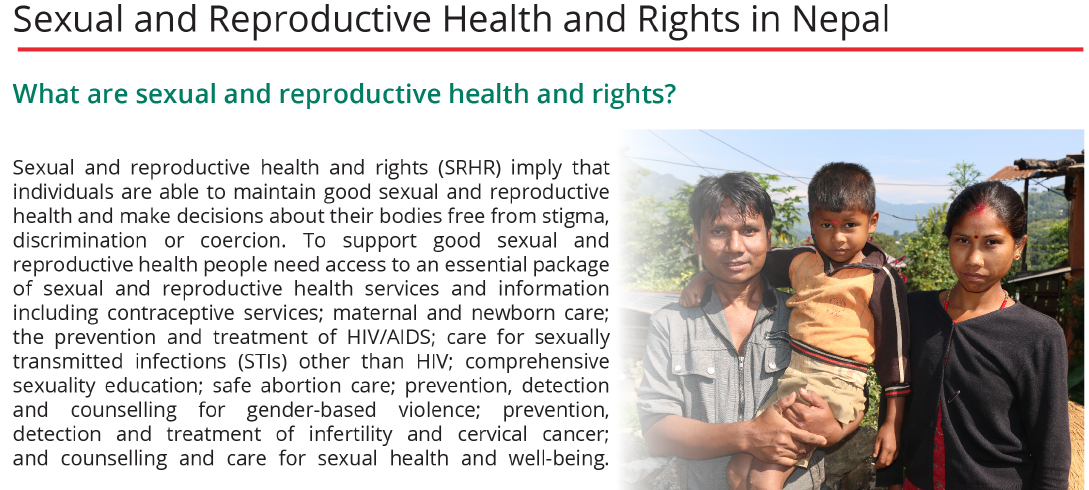
Fact Sheet: Sexual and Reproductive Health and Rights in Nepal
This fact sheet explains the present situation of sexual and Reproductive Health and Rights in Nepal. The Government of Nepal is committed to realizing rights and choices for all as evidenced by Nepal’s Safe Motherhood and Reproductive Health Rights Act 2018; its commitment to fully implement the ICPD Programme of Action at the Nairobi Summit last year; and its commitment to the achievement of the Sustainable Development Goals.
Notwithstanding these commitments, however, progress in Nepal has been uneven and many women and girls in remote areas and from marginalized groups are unable to exercise their choice over their bodies, their lives and their futures. Around 1,200 women die every year during pregnancy and childbirth and nearly one in three rural women who want to delay or postpone pregnancy are not using a modern method of contraceptive – this figure is significantly higher in hard-to-reach populations in Nepal.
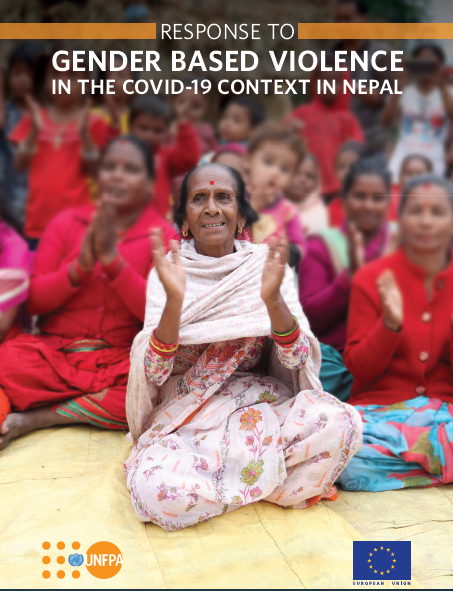
EU-UNFPA GBV project in Province 2 and Karnali
The Delegation of the European Union to Nepal and the United Nations Population Fund, in coordination with the Ministry of Women, Children and Senior Citizens and relevant provincial and local authorities, launched a two-year project to tackle gender-based violence (GBV) in Province 2 and Karnali on 14 October 2020.
As the COVID-19 crisis continues to put women and girls at increased risk of GBV, the project will ensure the provision of critical services for GBV survivors in 7 municipalities. The project will support One Stop Crisis Management Centres (OCMC), psychosocial services, and access to shelters, amongst other immediate response services. Working hand in hand with public and non-state actors, the project will strengthen and accelerate efforts to prevent and respond to GBV by addressing the emerging challenges and pre-existing gaps worsened by the COVID-19 pandemic.
This publication is the brochure of the project.
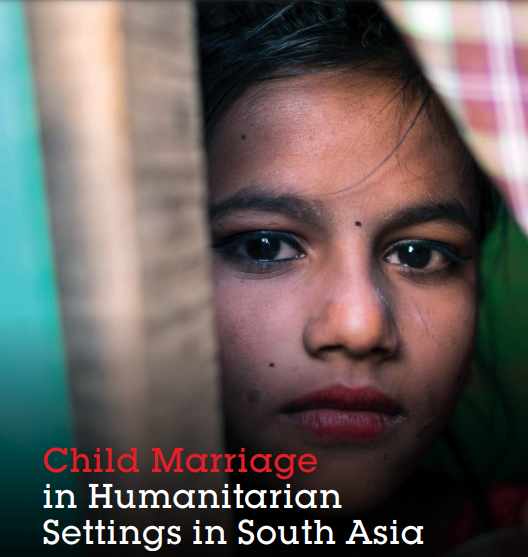
Child Marriage in Humanitarian Settings in South Asia
While the rates of child marriage are decreasing in South Asia, the vulnerability and insecurity that arises during humanitarian crises threatens to undermine this progress. This report combines the findings from research with conflict-affected Rohingya refugees residing in Bangladesh, and 2015 earthquake affected communities in Nepal. The research analyses similarities and differences across the contexts, in order to learn about these two settings and also to understand what might be generalized to child marriage in humanitarian settings more broadly. It is hoped that the findings will inform programme interventions in these humanitarian settings and provide insight into child marriage in humanitarian contexts.
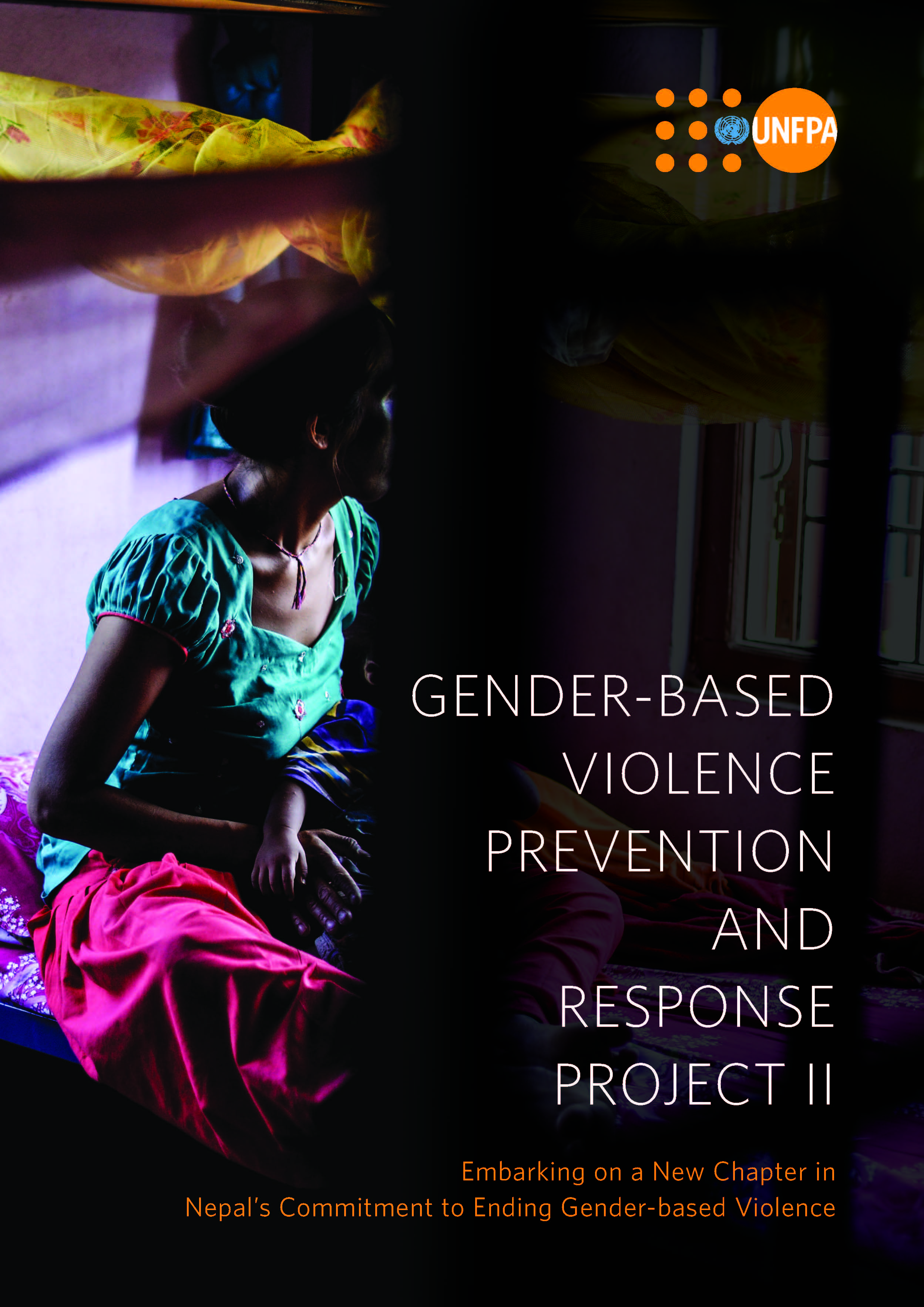
Gender Based Violence Prevention and Response Project Phase II
Although several policies, legislation and programmes for GBV prevention and the provision of response services have been put in place in Nepal, and there are encouraging signs of progress, much more needs to be done to end this scourge. This includes challenging social norms that value men and boys over women and girls and perpetuate discriminatory practices and violence against women and girls.
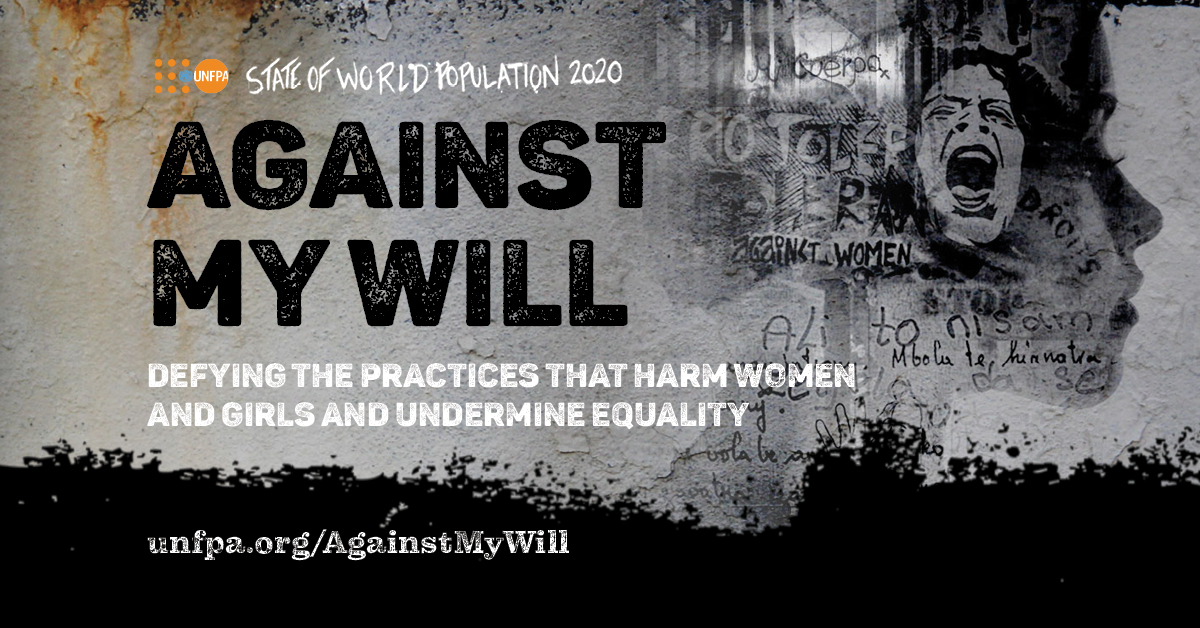
महिला तथा किशोरीहरुलाई हानी गर्ने र समानतालाई कमजोर पार्ने अभ्यासहरुलाई चुनौती दिऔं
यस प्रकाशन यूएनएफपीएको विश्व जनसंख्या स्थिति २०२० प्रतिवेदनमा आधारित मुख्य सन्देशहरुसँग सम्बन्धित छन् । नेपालमा विद्यमान लैङ्गिक असमानताका कारण छोरीको अवमुल्यन भईरहेको, प्रजनन दर घटिरहेको तथा छोरीलाई भन्दा छोराको चाहाना बढेको हुनाले गर्भपतन गर्ने अभ्यास वृद्धि भैरहेको छ ।
बालविवाहको सबैभन्दा उच्च दर रहेको एसियाली देशहरु मध्ये नेपाल पनि रहेको छ । नेपालमा किशोर–किशोरी दुवैका लागि विवाहको कानुनी उमेर २० वर्ष भएपनि ४० प्रतिशत किशोरीहरुको विवाह १८ वर्षभित्र विवाह हुने गरेको छ । किशोरीहरुको शिक्षा र स्वास्थ्य सेवामा पहुँच पुर्याउदै उनीहरुमा लगानी, विवाह गर्ने उमेर बढाउने र छिटो बच्चा नजन्माउने सुनिश्चित गर्नु आजको आवश्यकता हो ।
विश्व जनसंख्या स्थिति २०२० पूरा प्रतिवेदन यहाँ हेर्नुहोस् : http://unfpa.org/AgainstMyWill
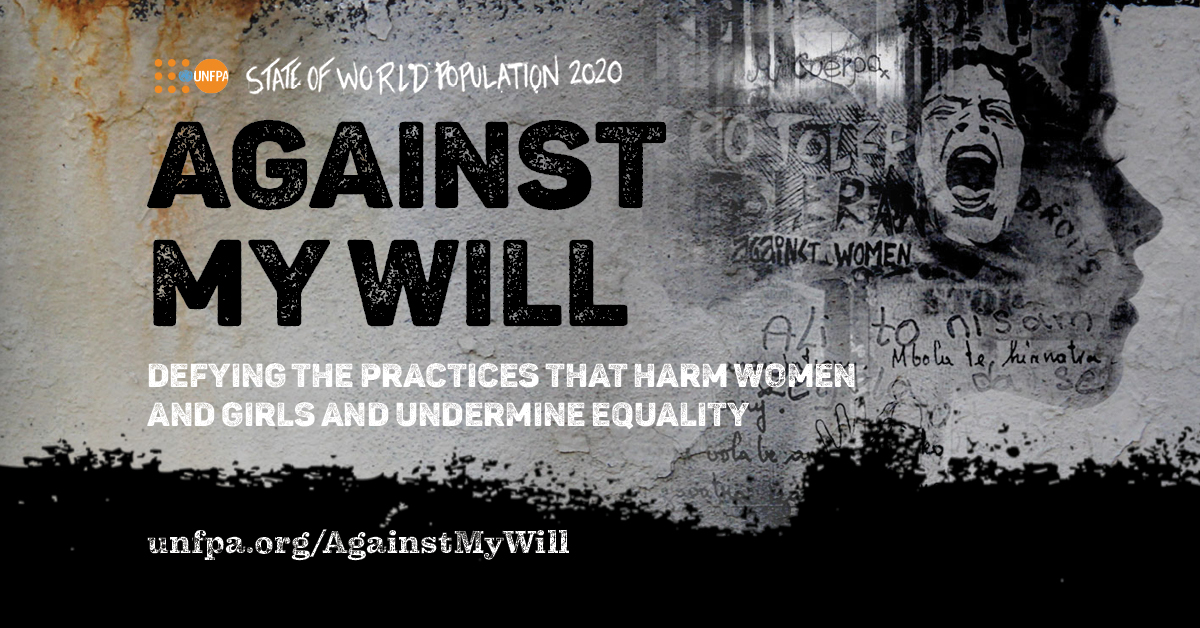
SWOP 2020 key messages
UNFPA launched the State of World Population 2020 report — “Against my will: defying the practices that harm women and girls and undermine equality”. The report identifies harmful practices around the world ranging from breast ironing to virginity testing; it focuses on the three most prevalent harmful practices: female genital mutilation, child marriage and extreme gender bias against daughters in favour of sons.
Nepal has one of the highest rates of child marriage in Asia – an estimated 40 percent of Nepali girls are married before the age of 18. Similarly, son preference is leading to an increase in the practice of sex-selective abortion and resulting in sex ratio at birth imbalances among certain population groups across the country. This document contains key messages of SWOP 2020.
The full SWOP 2020 report is available here.